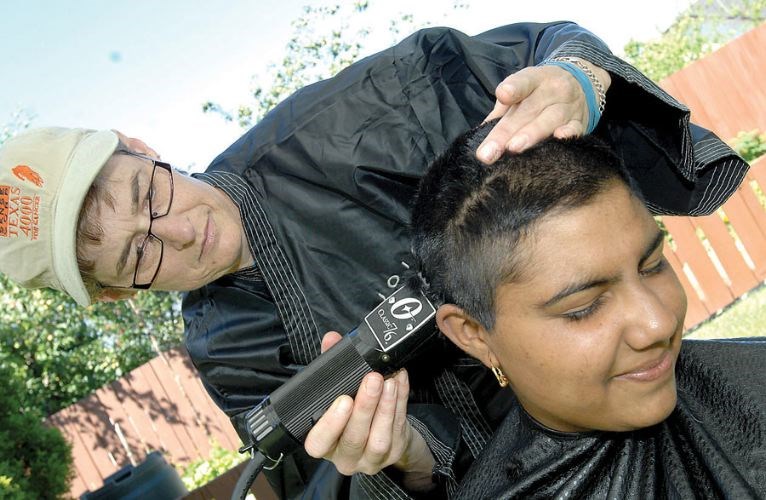When the 24 members of the Texas 4000 Rockies team gather every morning for their dedication circle, it's not a sombre event.
Borrowing the spirit - if not the form - of the haka ritual from the New Zealand Maori people, the daily activity energizes the group and helps them focus on for whom each of them are riding.
Now in its 10th year, the Texas 4000 is the world's longest annual charity bicycle ride with participants from the University of Texas pedalling more than 4,000 miles (6,437 kilometres) over 70 days between Austin and Anchorage.
Money raised from the event goes towards cancer research. Over the past nine years, the event has raised more than $3.5 million for the cause. Roughly $450,000 has already been raised this year.
About 70 cyclists are split into three teams tackling routes that go through the Rocky, Sierra and Ozark mountain ranges.
Each year, groups of riders from the Rocky and Sierra teams spend a rest day in Prince George - a much-anticipated stop thanks to resident Dorrie Sharcott.
This is Sharcott's ninth year hosting Texas 4000 participants and she has become the stuff of legend for those who take part in the event. She opens her home to the riders as a gathering place and organizes their overnight accommodations.
"We've been looking forward to going to Dorrie's," said Cindy Yang, 20.
Sharcott also shares with the cyclists why she continues to support their efforts. She lost her mother to leukemia in 2010 and her nephew Dylan Mikolajczyk in 2008. She said she doesn't care who finds the cure for cancer, as long as that goal is accomplished.
"I knew people were good, but I never knew people were this good," said Yang. "We meet all these hosts, especially Dorrie, she's just a phenomenal woman."
While the bike ride began on June 1, preparation began when the team members were selected 18 months ago. More than 200 people applied for the less than 70 spots on the 2013 ride.
Rocky team director Sarah Kettles, 22, said at least 60 hours of volunteer work per rider has gone into the Austin area, in addition to each participant being required to raise a minimum of $4,500 and log 1,500 miles on their bike to train.
"A lot of us are two- or three-time applicants," explained Samantha Chen, 22. "A lot of people don't get in the first time."
The individual reasons behind the desire to be a part of something so grueling varies person to person, but the overarching theme of loss and struggle is a common one.
Chen is dedicating her ride to her mentor Stephanie Flores, the captain of her rugby team who died shortly after suffering a head injury while playing - mere weeks from her graduation. Flores had plans to be a doctor.
"She's the reason why I have decided to do everything I can to take advantage of every moment and do whatever I can for as long as I can to help change the world."
Yang became involved in support of her father, Giuyeol Yang, who was fighting lymphoma when she started. He died last March.
Kettles also lost a close family friend, Sue Donovan, in her freshman year. Described as a second mother, Donovan fought both breast and ovarian cancer.
In addition to the physical challenge - the majority of the participants were not cyclists before signing on - there is also the mental challenge of getting through an average of 75 miles per day.
Though she admits it sounds like a cliche, Yang said thinking about why and for who they're doing the ride is what pushes them forward. "It really, really helps a lot, picturing the suffering they went through and why you're doing this."
Those interested in learning more about the ride can meet the next group that will pass through Prince George. The team taking on the Sierra route will arrive in Prince George on July 28 and will host a presentation, barbecue and jam session at the Kordyban Lodge July 29 beginning at 4 p.m.
"It's a good way to learn about the Texas 4000 and why we joined and why we're here," said Chen of the next group's visit.
For more information, or to donate, visit www.texas4000.org.



